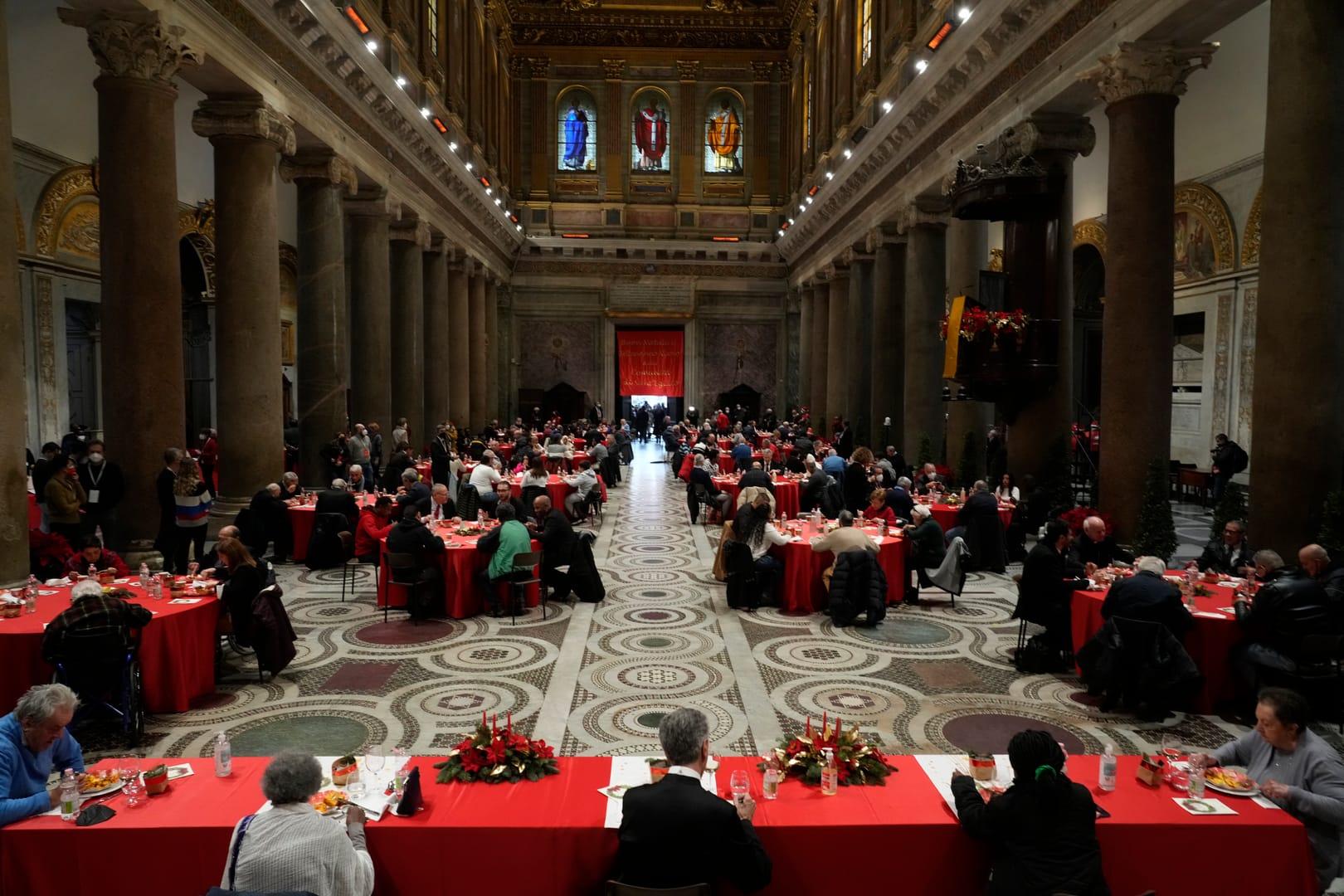ROME – Ahead of the World Day of the Poor, the pope’s vicar for the Diocese of Rome has urged priests and religious to show solidarity with families impacted by the lingering impact of the coronavirus pandemic and a spike in energy costs that make it harder for many families to make ends meet.
Instituted by Pope Francis as a result of the 2015-2016 extraordinary Jubilee of Mercy, the World Day of the Poor this year will be observed Nov. 13 and holds the theme, “For your sakes Christ became poor.”
According to Cardinal Angelo De Donatis, the Vicar General of the Diocese of Rome, the event this year is happening at a time “marked by suffering and by a world in apprehension for what is happening in the martyred land of Ukraine.”
“We live in a context marked also by the numerous regional wars that have been going on for some time, by the consequences of over two years of the COVID-19 pandemic, and by the serious economic and social effects of the energy crisis that is impacting many regions of the world,” he said.
Energy and gas prices across the world have skyrocketed since the Russia-Ukraine war broke out as a result of international sanctions targeting Russia over its Feb. 24 invasion of Ukraine.
Earlier this year, Italy’s Regulatory Authority for Energy, Networks and the Environment (ARERA) projected that the country’s regulated household electricity prices will increase by 59 percent in the fourth quarter, largely as a result of the war.
Some 41.5 percent of Italian households are impacted by the spike, which according to Reuters reflects a general rise in wholesale energy prices.
According to ARERA, the annual electricity bill for the average Italian household for 2022 will rise to around 1,322 euro ($1,292.78), from just 632 euros ($628) in 2021.
Italy, like many other European countries, is struggling to cope with the rising cost-of-living crisis while also grappling with increased numbers of citizens needing support in the post-pandemic era. Inflation rates as of August hit 9.1 percent, making it more difficult for families barely making it to scrape by.
Former Italian Prime Minister Mario Draghi’s outgoing government had set aside some 66 billion euros since January to soften the blow of the energy crisis, and the new government under the recently sworn-in Prime Minister Giorgia Meloni is expected to spend more.
De Donatis in an Oct. 24 letter to priests and religious in the diocese said that amid this current global context, it is necessary to “strengthen hope” by turning to scripture and making themselves “docile of the action of the Holy Spirit.”
He outlined several steps to take in preparation for the event, which he said are part of a “path of awareness and of pastoral animation” that goes beyond a set of data or specific event on the calendar.
“The delegation of pastoral charity work to the workers most available to assist the poor must be avoided,” De Donatis said, insisting that instead, priests and religious must seek “to involve the greatest number of faithful.”
Quoting Pope Francis’s 2013 apostolic exhortation Evangelii Gaudium, or “Joy of the Gospel,” he said that no one can stay distanced from the poor “because their life choices involve paying more attention to other tasks…No one can feel exonerated from concern for the poor and for social justice.”
De Donatis urged pastors to reflect on constructive ways for they and their communities to be close to the poor and needy, saying it is the poor who show the way to Christ.
To this end, he suggested three concrete initiatives that pastors and religious can organize within their own communities, the first of which was the celebration of a large Mass.
This should be a community Mass, De Donatis said, “where all our Christian brothers and sisters who receive help and support are invited, to celebrate with them and with our parish communities.”
He also proposed the promotion of “coexistence and community sharing, whether these are meals of “playful-creative moments.” The important thing, he said, is that these moments be an occasion of “mutual listening and sharing. Living with them, and not so much organizing for them.”
At a diocesan level, De Donatis also suggested that all parish and religious communities organize “a concrete act of solidarity” for the World Day of the Poor, such as a special collection, the funds of which will be offered to the Family Fund of the Caritas charity.
Through Caritas, the funds from these collections will support people and families “in greatest difficulty” amid the “exponential growth” of the number of poor and needy in recent years.
This collection, De Donatis said, “can be the fruit of a day of fasting, an extraordinary collection, or a free offering for an unpaid bill, or another sign of sharing.”
“Today and in the coming months in Rome, as in the rest of our country, an increasing number of people and families the possibility is running out to pay their respective bills for electricity and gas,” he said, and pointed to those most at risk, such as the elderly, small children, and those with either serious illnesses or disabilities.
In addition to the increasing needs is also “the need to grow in the awareness that our own attitudes of consumption need to change,” De Donatis said, insisting that this change must be reflected “in our houses, in our places of work, and in the environments that we frequent.”
Pointing to the theme for this year’s World Day of the Poor, De Donatis closed his letter urging priests and religious to imitate Jesus “in our small way, sharing the little that each of us has.”
Follow Elise Ann Allen on Twitter: @eliseannallen














